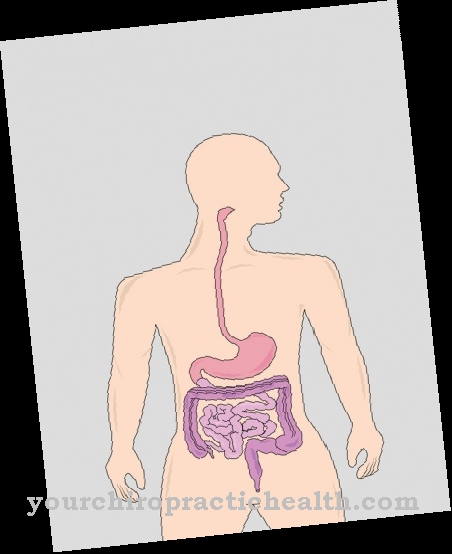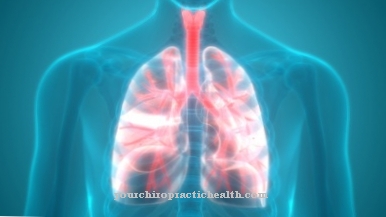In the Degranulation vesicles that are in a cell connect with its cell membrane and thus release more secretions. This process is used, among other things, by the immune system to fight pathogens with these secretions. Disorders of degranulation can therefore also impair the immune system.
What is Degranulation?

In medicine, degranulation refers to a biological process at the cellular level that is important for the functioning of the immune system, among other things. During degranulation, a cell releases substances into the environment; this process is also known as exocytosis and can take place in numerous functional systems and anatomical structures.
The substances that the cell releases through degranulation are accordingly secretions. Which secretion is involved depends on the role of the cell in the organism.
Inside cells that are capable of this process are small bubbles; medicine calls itself a vesicle. They are surrounded by a membrane and contain the secretion. When the cell receives the signal to degranulate, the vesicles move to the cell's membrane and fuse with it, allowing the secretion to escape from the cell. Not only individual vesicles are involved in degranulation, but a very large number. As a result, the secretion of the cell is higher than usual.
Function & task
Degranulation is important, among other things, for the correct functioning of the immune system, especially for the active fight against pathogens after the human body has already recognized them. Such pathogens are, for example, viruses and bacteria.
However, the defensive reaction of the immune system can also be directed against human cells, for example if they are no longer functional or even pose a potential danger to the organism.
One substance that the body can release in this way is perforin, which is directed against human cells. Perforin is thus part of the "suicide program" (apoptosis), which, for example, curbs the development of tumors through uncontrolled cell division.
Another secretion in degranulation is histamine. This is a tissue hormone that the organism can also release as part of the inflammatory reaction in order to set various other reactions in motion. In this case, histamine is part of a chain reaction.
Other substances that play a role as secretions in the context of degranulation are, for example, the enzyme peroxidase and other enzymes from the group of proteinases that break down proteins and a few others.
The cells that can degranulate are not of a uniform type. The secretions can come from lymphocytes, for example. These immune cells move in the blood and develop in the bone marrow. Granulocytes, which are more involved in the defense against bacteria, are also included. Likewise, mast cells, which are relevant for allergic reactions and wound healing, for example.
You can find your medication here
➔ Medicines to strengthen the defense and immune systemIllnesses & ailments
Since degranulation plays an important role in the correct functioning of the immune system, it is indirectly linked to an innumerable number of diseases. One example of this is the natural prevention of cancer in the human body.
As long as a person is alive, cells divide almost continuously. In addition, the organism is constantly exposed to environmental stress: sunlight, pollutants from the air and other influences can damage the genetic material that is contained in every cell. Faults in the genetic material can also occur during cell division itself. These changes (mutations) do not always lead to serious consequences, which is also due to the immune system. In many cases, for example, it is able to detect cancer cells before a tumor even forms.
A tumor is caused by uninhibited cell growth and, depending on its location, size and malignancy, can have a multitude of health consequences, which often manifest themselves unspecifically. Cancers can be fatal. If the body therefore detects such a risk-prone cell, it initiates an immune response. Depending on the location, the organism mobilizes appropriate immune cells - including those that carry vesicles with secretions.
They release their secretion through degranulation, which is directed against the potential cancer cell and destroys it. If this reaction is successful, the risk is eliminated and no tumor will develop.
In the case of cancer, however, this system usually fails. Some researchers therefore see improved treatment options and the chance of cancer prevention in improving this immune response and promoting the recognition of cancer cells even before they can cause damage. Currently, however, this research is still in its infancy and needs a lot more basic research.
Other examples of the connection between degranulation and diseases (which are only a selection) are the narrowing of the bronchi due to the release of histamine in bronchial asthma, various allergic reactions (including the immediate reaction), inflammatory reactions and an increase in gastric acid secretion.


.jpg)
























